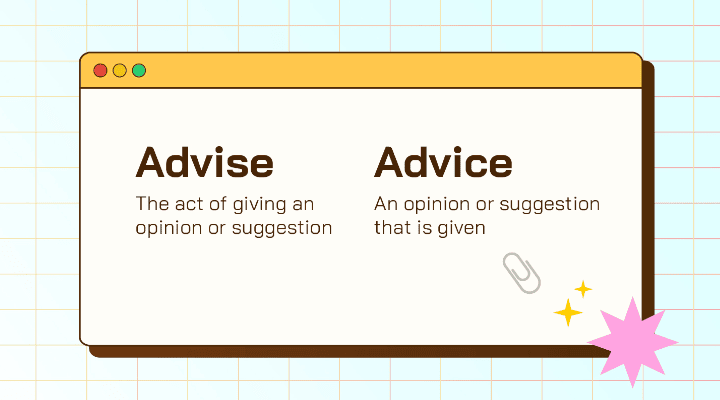6 Errors You Might Be Making In Your Emails

A well-crafted email can reflect your professionalism in the working realm, but let’s face it, even the most meticulous person can find themselves making the occasional misstep.
In this guide, we’ve compiled a list of common errors to dodge, so you can perfect your emails and maybe even score a virtual high-five from your boss.
1. "Pls Revert" vs. "Pls Reply"

The word "revert" is often used interchangeably with "reply", "answer" and "respond", but this is incorrect – what "revert" really means is to "return something to a former condition".
So, the next time you want someone to get back to you as soon as possible, use the word "reply" instead.
2. "Advise" vs. "Advice"

"Advise" and "advice" are commonly mixed up with each other, but despite their similar spelling, they have different meanings. "Advise" is a verb that refers to the act of giving an opinion or suggestion, whereas "advice" is a noun that refers to an opinion or suggestion that is given.
When you’re asking someone to respond to a burning question or the solution to a tricky situation, the correct phrase to use is "please advise".
3. "With Regards To" vs. "With Regard To"
The noun "regard" means "respect" or "relation". When you’re trying to express a thought that is referring to, or about something, the correct phrase to use in an email is "with regard to".
Using the plural form of this noun, "regards", would mean that you’re conveying your "best wishes". You could send your "regards" to your colleague, but you would have a conversation "with regard to" a meeting you had two days ago.
4. "Dateline" vs. "Deadline"

Another pair of words commonly mistaken for each other is "dateline" and "deadline" – they may sound similar but have entirely different meanings.
"Dateline" refers to the line in the newspapers where the date and place of publishing are printed, while "deadline" is the time limit within which a project or task is to be completed.
5. "Quick Turnover" vs. "Quick Turnaround"
When thanking someone for a speedy response or completion of a task, you might confuse the words "turnover" and "turnaround" with each other.
However, these two words have distinct meanings – while a quick "turnaround" refers to a quick response, a quick "turnover" typically refers to the speed at which goods are produced, sold, and replaced in a business context. "Turnover" could also refer to the rate at which employees leave an organisation and are replaced by new staff.
6. "Irregardless Of" vs. "Regardless Of"

Both regardless and irregardless mean the same thing – they indicate a lack of regard or consideration for something.
But when it comes to professional settings, it’s recommended that you use the term “regardless”. This is because “irregardless” is generally considered to be informal and unnecessary – many dictionaries list the word as a nonstandard word.

Want to get more stories like this? Join our Telegram channel: https://t.me/psdchallenge.
- POSTED ON
Mar 4, 2024
- TEXT BY
Yoganeetha Sivakumar
- PHOTOS BY
Constance Neo








